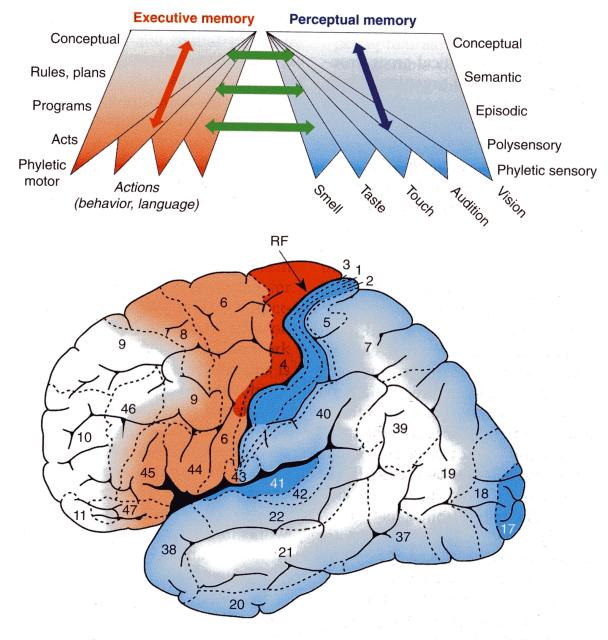

|
Scientific Understanding of Consciousness |
VisionVisual perception is formed in a hierarchy of neuronal assemblies extending from the primary visual areas of posterior cortex, through the association areas of parietal cortex, the interpretive areas of temporal cortex, and into the frontal cortex. Perception is associated with sparse but widespread neural activity in the higher levels of the ever widening receptive fields this visual hierarchy. Visual memory is mediated by synaptic plasticity in the sparse but widespread neural activity patterns in the higher association cortex. Link to — Vision
Audition and SpeechHierarchy of three pathways in series through which auditory information passes on its afferent journey through the CNS. (1) Reticular formation, (2) Thalamus, (3) Cortex. (Schneck & Berger; Music Effect, 86) Link to — Auditory System
Somatosensory
Research Study — Sense of Touch
Pain Neural Pathways diagram
Taste
OlfactoryTaste and olfactory inputs converge in the orbitofrontal cortex of the frontal lobes, producing in a subjective flavor representation. Flavor representation -- of taste and olfactory inputs in. (Rolls; Memory, Attention, and Decision-Making, 151)
Convergence-Divergence Zones and Working MemoryThe association cortex areas of sensory processing will involve the functionality of Damasio's Convergence-Divergence Zone architecture. The working memory model of Baddeley will function together with Fuster’s Perception-Action Cycle.
Return to — Sense-of-SelfReturn to — Human-type Consciousness |

|
Hierarchical Organization of Memory Networks (Joaquín Fuster; The Prefrontal Cortex, 339) |